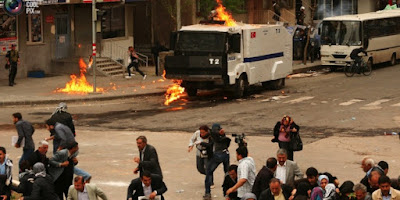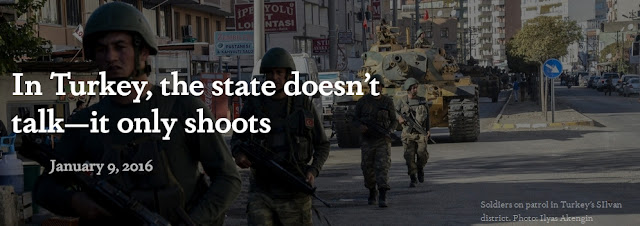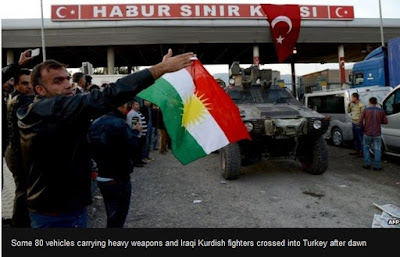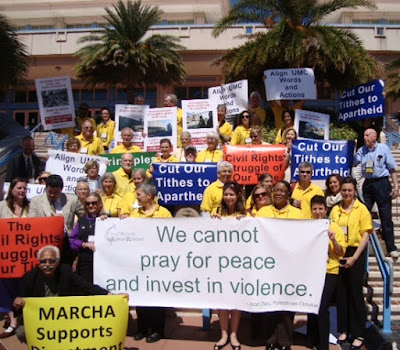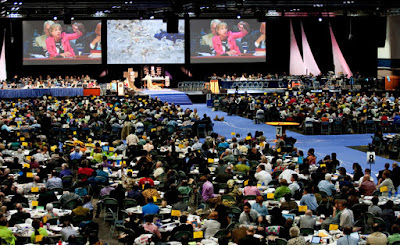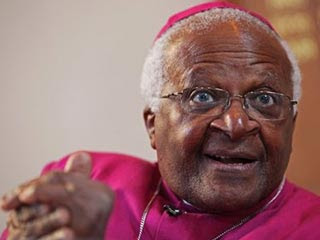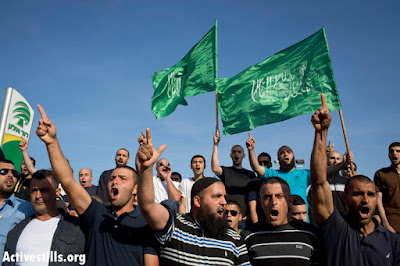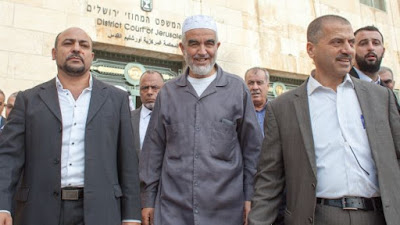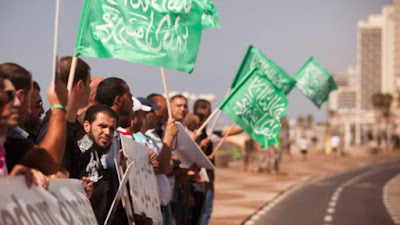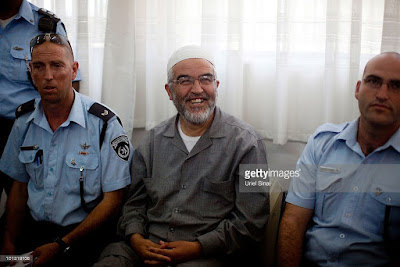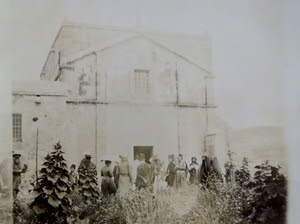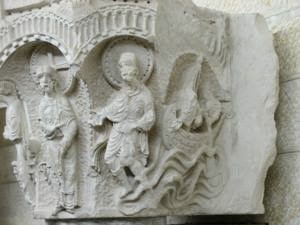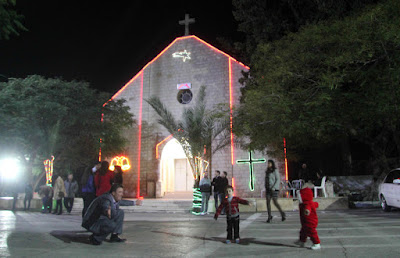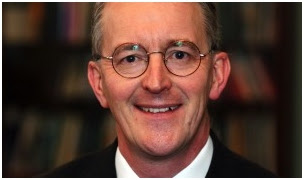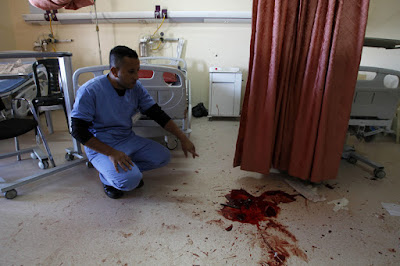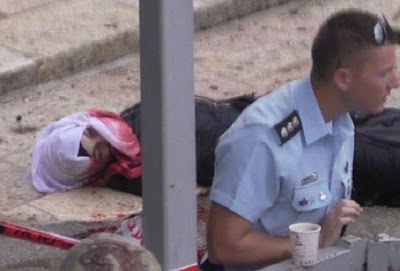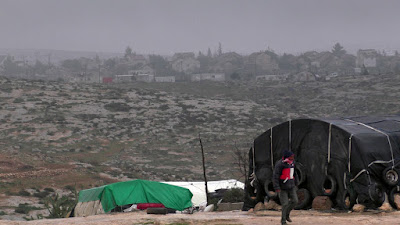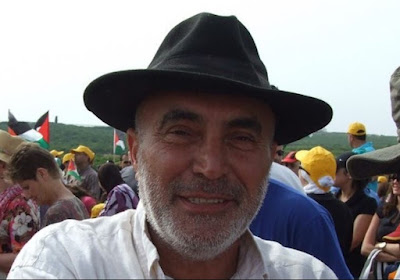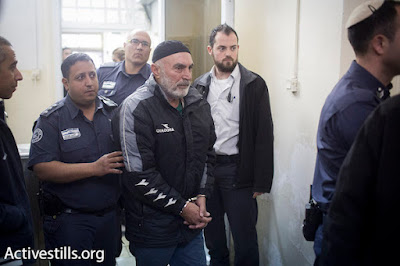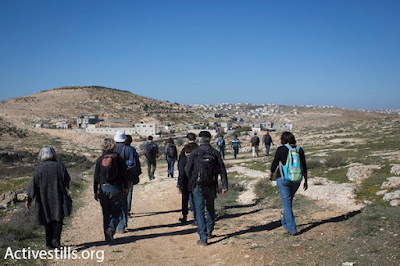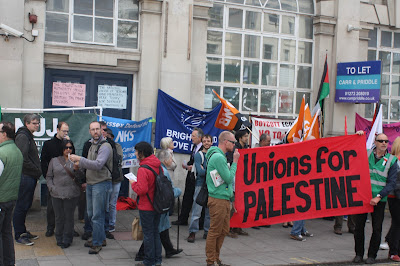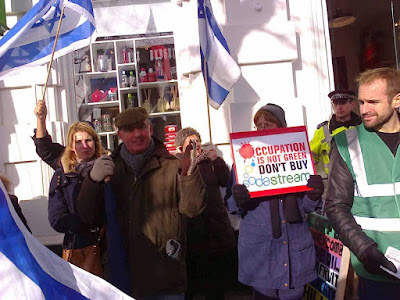![]() |
| Demonstration against the banning of the northern wing of the Islamic Movement |
Netanyahu decided on November 17th to ban the northern wing of the Islamic Movement. A movement which is supported by about half of Israeli Palestinians. Netanyahu did this for nakedly political reasons, as Jonathan Cook shows in his article below. ![]() |
| Raed Salah outside Jerusalem District Court |
There isn’t an iota of proof that the Islamic Movement is involved or has been involved in violent or ‘terrorist’ activities. It is a nakedly racist and undemocratic decision which gives the lie to any pretence that Israel is a democratic state.
Suffice to say the Israeli Labour Party/Zionist Union and the ‘centrist’ Yesh Atid both supported the decision to ban the Islamic Movement’s northern branch.
Tony Greenstein
![]() |
| Demonstration against the banning of the northern wing of the Islamic movement |
![]() |
| Demonstration in Umm al-Fahm |
The decision to outlaw the northern wing of the Islamic Movement in Israel was announced by Benjamin Netanyahu’s government on November 17, 2015, days after attacks claimed by the Islamic State in Iraq and Syria, or ISIS, left 130 dead in Paris. Although the ban had been long in the making, the timing was patently opportunistic, with Netanyahu even comparing Israel’s Islamic Movement to ISIS. It is still unclear how the Israeli intelligence services and police will enforce the ban, given that the group has thousands of paid-up members among Israel’s large Palestinian minority, and ties to welfare associations and charities in Palestinian communities across Israel. The movement’s leader, Sheikh Ra’id Salah, has vowed to carry on, declaring: “The movement is not a passing phenomenon but one with deep roots everywhere.”
![]() |
| protest outside US embassy in Tel Aviv |
The only person arrested so far, more than a month on, is not Salah, but a 64-year old female resident of East Jerusalem. Zinat Jallad was brought to court on December 11, accused of belonging both to the Islamic Movement and to the Murabitat (Defenders of Islam). The latter group comprises women who study and pray at the Haram al-Sharif, or Noble Sanctuary, a compound in Jerusalem’s Old City that contains the al-Aqsa Mosque and the gold-topped Dome of the Rock shrine. To Jews, it is known as the Temple Mount, after two long-lost temples that they believe lie beneath the esplanade. The Murabitat and an associated group of men known as the Murabitun were declared illegal organizations by Netanyahu’s government in September, as a prelude to the crackdown on the northern Islamic Movement. The groups, established in 2012, were accused by Netanyahu of acting as Salah’s agents at al-Aqsa.
![]() |
| Raed Salah in court in Jerusalem |
The prohibition on the Islamic Movement was formally issued by the defense minister, Moshe Yaalon, based on emergency regulations inherited from the British Mandatory authorities. But the driving force was Netanyahu himself and his strong antipathy to Salah and his activities at al-Aqsa. After weeks of unrest in Jerusalem and the West Bank that began in the late summer of 2015, Netanyahu held a press conference in early October in which he stated: “We are in the midst of a wave of terrorism with knives, firebombs, rocks and even live fire. While these acts are mostly unorganized, they are all the result of wild and mendacious incitement by Hamas, the Palestinian Authority, several countries in the region and—no less and frequently much more—the Islamic Movement in Israel, which is igniting the ground with lies regarding our policy on the Temple Mount.”
![]() |
| Right-wing Zionists demonstrating outside Raed Salah's trial |
A month later Netanyahu’s office announced the outlawing of the movement, claiming it was required “in the name of state security, public safety and public order,” and as a “vital step to prevent the loss of life.” Officials also declared Salah’s movement a “sister” organization of Hamas, arguing that there was “close and secret” cooperation between them. No evidence was provided.
Netanyahu’s efforts to blame “incitement” from the Islamic Movement for Palestinian protests and sporadic attacks conflicted with the advice he was receiving from his intelligence services. In early November, shortly before the ban was announced, Herzi Halevi, head of military intelligence, told the cabinet that a mix of “despair” and a sense that that they had “nothing to lose,” and to a lesser extent what he termed “incitement” from social media, were the factors driving Palestinians to carry out “terror” attacks. He did not mention the Islamic Movement. The domestic intelligence service, the Shinbet, concurred. A report issued a week before the outlawing of Salah’s movement concluded that Palestinian attackers were chiefly motivated by “feelings of national, economic and personal deprivation."
Behind the scenes, the Israeli daily Haaretz reported, the Shinbet had advised Netanyahu that there was no evidence linking the Islamic Movement to terror attacks and that it was operating within the law. The Shinbet’s head, Yoram Cohen, was also known to have lobbied the cabinet against the ban, warning that it was likely to be interpreted as a declaration of war not only on Salah’s movement but also on the Muslim community in Israel generally, as well as an assault on the wider political rights of the Palestinian minority.
Facts on Jerusalem’s Ground
The security services began scrutinizing Salah’s organization from the moment of its birth in 1996, when it broke away from the rest of the Islamic Movement, Israel’s branch of the Society of Muslim Brothers. The split had been provoked by the Oslo accords concluded three years earlier. Salah, along with Hamas in the occupied Palestinian territories, rejected the terms of a diplomatic process premised on a two-state solution, fearing that it would be seen implicitly to recognize Israel as a Jewish state. Further, Salah, then mayor of Umm al-Fahm, vehemently opposed the decision of the rest of the movement, now labeled the southern wing, to participate in Israel’s parliamentary elections. But unlike Hamas, Salah made clear he eschewed violence, arguing that the struggle from within Israel must take a different form.
Instead Salah pursued a strategy familiar to other marginalized Muslim Brother movements, concentrating his energies on building up a network of charities and welfare associations—including kindergartens, health clinics, sports associations and cultural centers—in some of the poorest Palestinian communities in Israel. The northern wing’s good works, and Salah’s quiet charisma, soon won it support. More significantly, Salah recruited a large following by turning the Haram al-Sharif into a political project for Israel’s Palestinian minority, 1.6 million citizens comprising a fifth of the population.
Salah was quick to recognize the dangers implicit in the Oslo accords for al-Aqsa and the surrounding esplanade. The re-partition of historical Palestine assumed to be at the heart of the new diplomatic initiative would be most hotly contested in Jerusalem. It was generally assumed that the eastern sections of the city, occupied by Israel in 1967, would become part of the Palestinian state presaged by Yasser Arafat and the PLO’s return to the West Bank and Gaza. But Salah, unlike the newly established Palestinian leadership in the Occupied Territories, believed Israel was likely to respond to the Oslo process by intensifying its Judaization policies in East Jerusalem rather than conceding it as a capital of a future Palestinian state.
Just as Oslo witnessed a rapid expansion of Jewish colonization of the West Bank, with settlers running to “seize the hilltops,” as Israeli general-turned-politician Ariel Sharon commanded, it also unleashed a new urgency to create facts on the ground in Jerusalem. In 1996, the year the northern Islamic Movement was born, Netanyahu, in his first term as prime minister, authorized the opening of the Western Wall tunnels. These extensive excavations ran close by the al-Aqsa compound and triggered Palestinian riots and a lethal response from Israeli security forces. Those confrontations were the bloodiest since the conclusion of the Oslo accords.
With the occupation of Jerusalem in 1967, the holy esplanade had acquired an ever-greater centrality in the thinking of both religious and secular Jews. The Temple Mount served a useful political purpose: It was a symbol that brought the religious and secular populations closer together by blurring the differences between them. Control over the Temple Mount could exemplify both the rebirth of God’s plan in the Promised Land and the reassertion in the Middle East of the earthly powers of a long-exiled people. As Israeli politicians cultivated a popular attachment to the Temple Mount, it soon came to serve a totemic function none of them could afford to be seen neglecting.
At the Camp David summit in the summer of 2000, the presumed conclusion of the Oslo process, Israeli Prime Minister Ehud Barak staked Israel’s claim to sovereignty over al-Aqsa in front of President Bill Clinton. Contrary to popular perception of a flexible and “generous” Israeli approach, Barak was reported by his own advisers to have “blown up” the negotiations on this single issue.
Off Limits
Salah and the northern Islamic Movement not only identified Israel’s increasingly aggressive ambitions toward al-Aqsa, but also the lack of a credible Palestinian or Islamic response. Over time, the northern Islamic Movement stepped in to fill an organizational and strategic void at al-Aqsa that grew ever more apparent after the signing of the Oslo accords.
Following Israel’s seizure of East Jerusalem in 1967 and the Palestinian city’s annexation, formal control over al-Aqsa remained with the waqf, an Islamic authority controlled by Jordan. But with Oslo’s establishment of a Palestinian Authority under Yasser Arafat in the territories, Israel gradually exploited the weakening lines of authority at the esplanade to undermine the roles of both the PA and Jordan. After the outbreak of the second intifada, Israel moved swiftly to bar the PA from Jerusalem entirely; and with diplomatic relations deteriorating, Jordan could exercise its power only at arm’s length.
The partition principle inherent in Oslo—and enforced one-sidedly by Israel—added to the isolation of the holy esplanade. While settlers moved into the Occupied Territories in greater numbers than ever, Palestinians found themselves increasingly locked into ghettoes. Permits and checkpoints limited movement through the 1990s, culminating in the construction of a massive separation barrier from 2003. Jerusalem became off limits to most Palestinians in the West Bank and Gaza. And in turn, that meant few could reach al-Aqsa to pray.
It was in this atmosphere, in late 2000, as the holy esplanade (and, indeed, all of East Jerusalem) was being physically separated from its Palestinian hinterland, that Sharon made his incendiary visit to al-Aqsa, backed by hundreds of armed police. There he asserted de facto Israeli sovereignty over al-Aqsa, in the immediate wake of Barak’s failure at Camp David to win US recognition of Israel’s de jure sovereignty. The visit triggered the second intifada.
“Al-Aqsa Sheikh”
Salah was far from idle as these developments unfolded. Soon after founding the northern wing, he launched a political campaign for the Palestinian public in Israel, popularizing the slogan, “al-Aqsa is in danger.” An annual rally in Umm al-Fahm attracted tens of thousands of Palestinian citizens of Israel. Salah was determined to bolster the status of al-Aqsa mosque as a religious and nationalist symbol for Palestinians to inoculate it from the counter-narrative being advanced by Israeli politicians.
At the holy esplanade, Salah took a decisive hand. He recruited volunteers from the Muslim community inside Israel to do much of the heavy lifting as the waqfrenovated extensive areas of the compound in the late 1990s. The restoration of prayer halls expanded the number of worshipers the site could accommodate, further highlighting the importance of attendance by Palestinians from Israel. To the irritation of Jordanian and PA officials, Salah had soon earned the popular moniker “al-Aqsa sheikh.”
Additionally, Salah arranged buses to ferry large numbers of supporters from Palestinian heartlands in Israel’s north and south to restore al-Aqsa as a central place of Muslim worship and to shop in Jerusalem’s Old City, where the tourist trade was suffering after the outbreak of the second intifada in late 2000. Merchants and residents of the Old City were indebted to him, benefiting from this new kind of Palestinian tourism to Jerusalem—one that replaced the foreign tourists, who were too fearful to visit the region, and West Bank Palestinians, who were shut out.
Salah’s increasing identification with al-Aqsa—not only locally but in the Arab and Muslim worlds—brought prestige and funding that helped him to expand the busing operations and a growing network of charities and religious institutions. The southern wing had its two or three members sitting in the Knesset; Salah had al-Aqsa and his credibility bolstered as both a spiritual leader and a forceful independent political actor.
It was therefore inevitable that he would run afoul of Sharon after the latter became prime minister in 2001. Sharon immediately began tearing up the Oslo accords by reinvading and locking down the West Bank, and then approving a separation barrier that would run through Jerusalem. Jordan had cut ties with Israel. Only Salah and his Islamic Movement stood in the way of al-Aqsa’s complete isolation.
Campaign of Harassment
It was in May 2003 that Salah was awakened in the hospital, at the bedside of his dying father, to find himself surrounded by Israeli police and camera crews. He and 15 other northern Islamic Movement officials were arrested, accused both of funneling money to Hamas to “oil the wheels of murderous terrorism” and of making contact with an Iranian “foreign agent.”
In fact, as later became clear, Salah was being charged over his charitable work, under a new kind of offense Israel was promoting—one now popular with US and European governments, too. The northern movement was accused of directing millions of dollars to Palestinian charities in the Occupied Territories that Israel alleged were allied to Hamas and which had been set up to help the victims of Israel’s military operations, including widows and orphans. Salah later stated that he had received permission from the Shinbet to make the transfers. But no matter: The money to humanitarian causes could now be presented as a form of assistance, even if indirect, to a terror organization.
During Salah’s 18-month trial, the charges were progressively scaled back, the allegation that he had met a foreign agent was dropped, and dramatic evidence Sharon’s office kept promising would soon be presented to the court never materialized. In early 2005, a plea bargain was announced in which Salah was sentenced to three and a half years. He was released a short time later.
In interviews at that time, Salah pointed out that his arrest and trial followed Sharon’s repeated efforts to outlaw the Islamic Movement. But, as his successors would discover, there was stiff opposition from the Shinbet. The intelligence service was worried that banning the movement would cause more problems than it solved. It would be hard to enforce a ban on a movement with more than 10,000 members and an extensive network of charities, many of them carrying out vital work in deprived Palestinian communities the state had forsaken. The movement would be driven underground, making it harder to track, and some of its members might be pushed toward violence. And there was the fear that Salah’s popularity would rocket following a ban, “radicalizing,” in the words of officials, the wider Palestinian public in Israel.
Instead Salah found himself the target of a campaign of relentless personal harassment. He was repeatedly arrested, accused of making inflammatory sermons, or insulting or assaulting police officers. He has spent much of the intervening period under heavy surveillance, in jail or under travel restrictions, either barring him from traveling abroad or from entering Jerusalem. Paradoxically, if Salah’s lawyers soon exhaust the appeals process in a long-running court case, his first stint in prison following the ban may be for a speech he gave in 2007 in which he is alleged to have incited the audience to violence.
Noteworthy Parallels
When Netanyahu returned to power in 2009, Salah was high in his sights, both for his work at al-Aqsa and for his wider role among the Palestinian minority in Israel.
Israel has a history of suppressing Palestinian political movements that challenge the very ideological foundations on which a Jewish state was created. The first serious threat of that kind had been posed by al-Ard, a secular pan-Arabist movement established in 1959, when the Palestinian minority lived under military rule. Al-Ard was officially outlawed in 1964, and a year later the Israeli Supreme Court disqualified its list of candidates from running in the 1965 general election.
In recent times the only other Palestinian leader in Israel who had troubled the political-security establishment as much as Salah was Azmi Bishara, leader of the secular democratic nationalist Balad party, or Tajammu‘ in Arabic. Like Salah, he had founded a new party in reaction to Oslo. In his case, he identified the key unresolved question for the Palestinian minority in Oslo’s presumed partition of historical Palestine as the nature of continuing citizenship for non-Jews in a Jewish state.
There are noteworthy parallels between the Bishara and Salah approaches, and their respective handling by Israel.
In 2007, when Bishara was abroad, the Shinbet announced that, if he returned, he would put on trial for treason. He was forced into political exile. The main accusation, barely credible, was that he had helped direct Hizballah rocket fire into Israel during Israel’s confrontation with the Lebanese faction in 2006. More likely, the leadership had grown incensed by Bishara’s confrontational positions, his efforts to develop ties between the Palestinian minority and surrounding Arab states, and his demands that Israel be reformed from a Jewish state into “a state of all its citizens.”
Around this latter idea, Bishara and his Balad party had campaigned for educational and cultural autonomy as a way to strengthen Palestinian society in Israel. They also urged reform of the minority’s only national political body, the Arab Higher Follow-Up Committee, to make it more representative and accountable to the Palestinian public. Balad saw these moves as essential defenses against the disruptive powers of a state with highly developed national institutions serving only the Jewish population.
In many ways Salah shared a similar vision, if one with an obviously more religious tone. As well as trying to infuse the public with greater Islamic zeal, the northern movement’s network of charities and associations was designed to strengthen the Palestinian minority, especially poorer communities, and provide it with a degree of autonomy from a hostile state.
That was particularly evident in the Naqab (Negev), where the movement quickly used its mosques and associations to find favor with local Bedouin youth. Many of their parents and grandparents, cut off and vulnerable in Israel’s semi-desert south, had tried to accommodate Israel by serving in the army and taking casual and low-paid jobs in the Israeli economy. But the younger generation saw how their elders had failed to advance in spite of their loyalty: Their rights to their ancestral lands were rejected and their villages criminalized, denied water and electricity and their homes demolished in a bid to pressure them into townships lacking infrastructure and employment opportunities.
Salah’s movement offered a route out of degrading dependence and a chance at dignity. When Netanyahu’s government tried to force tens of thousands of Bedouin off their lands under the Prawer Plan, large protests, assisted significantly by the organizational work of the Islamic Movement, forced a government climbdown in late 2013. For Israeli officials, the resolve of the Bedouin to resist their mistreatment was proof of “radicalization”—and the Islamic Movement was blamed.
Salah, like Bishara’s Balad party, was also sympathetic to the idea of reforming the Follow-Up Committee. It was the Jewish-Arab Communist Party and the local, more tribally based mayors that were opposed. Like Bishara, Salah had also raised the Palestinian minority’s profile in the region—in his case through his work at al-Aqsa. And, in ways appreciated by Balad activists, Salah accentuated the nationalist as much as the Islamic significance of the holy esplanade in Jerusalem.
For these reasons, Netanyahu and the Shinbet wanted Salah “neutralized,” just as Bishara had earlier been. Two incidents in particular suggested to observers that Netanyahu’s government was seeking ways, possibly extreme ones, to eliminate Salah as a threat.
In 2010, the sheikh was among a handful of Israeli-Palestinian leaders who joined an aid flotilla to break Israel’s blockade of Gaza. The main ship, the Mavi Marmara, was intercepted by the Israeli navy in an operation in international waters that killed nine of the humanitarian activists aboard. First reports suggested that Salah was among the dead. With astonishing speed, large numbers of police were drafted into Palestinian areas in Israel in expectation of violent protests. Only later did it emerge that the commandos had killed a man, shot in the head at point-blank range, who closely resembled Salah. It has been hard to dispel the impression among the Palestinian minority that Israel hoped to take advantage of the interception to rid itself of Salah.
A year later the sheikh managed to travel outside Israel again, this time to Britain. The British media appeared familiar with Salah from the moment of his arrival, warning that he was a “preacher of hate,” a “vile militant extremist” and an anti-Semite. Shortly before he was due to address a public meeting in the parliament building, he was arrested in his hotel. The government insisted on his immediate deportation, saying he had managed to enter despite being on an entry blacklist. But as a series of tribunal hearings dragged on for many months, it emerged that the British government had acted exclusively on briefings provided by the Community Security Trust, a local right-wing Zionist organization with close ties to the Israeli government. The tribunal overruled the deportation order, with the judge criticizing the British government for acting on erroneous information, including a patently faulty translation of one of Salah’s speeches made by the Israeli right-wing daily, the Jerusalem Post.
Digging In
Israel’s Judaization efforts, especially in the areas immediately around al-Aqsa, intensified in East Jerusalem following the outbreak of the second intifadaand the PA’s exclusion from the city. Emek Shaveh, an organization of dissident Israeli archaeologists, has sounded repeated warnings that Israel is aggressively using archaeological pretexts to encircle the holy esplanade. Most notably, a settler organization, Elad, assisted by the government, police and Jerusalem municipality, created an archaeological park, claiming to be the City of David, next to the esplanade’s southern wall, immediately below the al-Aqsa Mosque. Palestinian residents of neighboring Silwan are being gradually driven out of the area as Elad quite literally digs in.
Salah has expressed equal concern about what he believes is ultimately intended inside the Haram al-Sharif itself. According to oral understandings between Israel and Jordan, known as the “status quo,” Israel has responsibility for overseeing security arrangements at al-Aqsa, while the Jordanian-controlled waqfis supposed to have sole religious authority over the esplanade. In practice, however, Israel’s security mandate means it has an active role in shaping the physical environment at al-Aqsa and deciding who can enter. That has resulted in extremist Jews, some of them committed to the destruction of al-Aqsa and its replacement with a third temple, gaining ever greater access to the site, with a near-doubling of such visits recorded over the last six years. Salah characterizes these developments as a prelude to Israel dividing al-Aqsa “temporally and spatially.” Israel, he says, intends to introduce de facto changes to the status quo that will provide Jews either with their own section for prayer or their own dedicated times for prayer.
Salah’s claims are not simple conspiracy theory. They are rooted in fears that Israel will try to reproduce its success in Hebron, where in the 1990s it split the Ibrahimi mosque in two, giving settlers control of a section now called the Tomb of the Patriarchs. For that reason, his concerns resonated with many Palestinians, including even the PA President Mahmoud ‘Abbas. He issued a similar warning to the UN General Assembly in September 2015.
In a counter-move in 2012, two groups of Islamic guardians were established at al-Aqsa, known as the Murabitun and Murabitat: men and women committed to being present at and defending the holy esplanade. Although Salah denies being directly responsible for founding the groups, his northern Islamic Movement undoubtedly helped to organize and fund them. The Murabitun and Murabitat run prayer circles (halaqat) and education courses in al-Aqsa mosque and the Dome, respectively, for men and women. Netanyahu and his officials accuse the Islamic groups of harassing “tourists” visiting al-Aqsa. In fact, the groups target not tourists, but ultra-nationalist Jews, backed by Israeli police, who have been coming in ever larger numbers to the holy esplanade to assert Jewish control at the site and the right to pray there. Typically, the Murabitun and Murabitat confront and intimidate such Jews by massing near them and crying out “Allahu akbar!”
In addition, young men from East Jerusalem—nicknamed Shabab al-Aqsa by the Israeli media—became a more visible and active presence at the Haram al-Sharif, clashing frequently with police as Israel intensified restrictions on Palestinian worship and access by extremist Jews increased. Israeli security officials accused the northern wing of organizing the youths and inspiring their violence.
More generally, Palestinian unrest found an outlet in Jerusalem from the summer of 2014 onward. By then ordinary Palestinians had grown exasperated by the failure of Mahmoud ‘Abbas’ PA to make diplomatic headway on statehood. The trigger for unrest that summer was the kidnapping and burning to death of a local 16-year old boy, Muhammad Abu Khudayr, by extremist Jews. Immediately afterward, Israel launched another lethal attack on Gaza, Operation Protective Edge. While the West Bank’s population was kept largely in check by the PA’s repressive security forces, Jerusalem erupted into violence.
The clashes with Israeli police lasted weeks and were supplemented by sporadic attacks over the next months carried out by individual Palestinians on Israelis—many of them stabbing or car-ramming incidents. At the time Netanyahu loudly accused Salah’s Islamic Movement of helping to organize the violence in Jerusalem, although again he produced no evidence. The Israeli media reported that the prime minister had demanded that the Shinbet investigate how to implement a ban on the Islamic Movement.
When Jerusalem, and more specifically the holy esplanade, became the center of trouble again at summer’s end in 2015, as the Jewish high holidays brought large numbers of ultra-nationalist Jews to the Haram al-Sharif, a drastic move against Salah’s Islamic Movement seemed all but inevitable. The waters were tested first by outlawing the Murabitun and Murabitat in September.
The Mood Sours
A ban on the northern wing had long been blocked by the Shinbet, but their resolve weakened as regional and global opinion hardened toward political Islam. Following the 2013 military coup in Egypt, Field Marshal ‘Abd al-Fattah al-Sisi helped pave the way for Netanyahu’s move by outlawing the Muslim Brothers at home and waging a low-level war on Hamas in Gaza. Meanwhile, the mood in Europe and the United States soured after the Paris attacks. Netanyahu knew the international community was unlikely to raise objections or study too closely the comparisons he was making between Salah’s Islamic Movement, Hamas and ISIS.
According to Salah, the US and an Arab state—almost certainly Jordan—played an important part behind the scenes in giving Netanyahu a green light. He says the ban was engineered at a meeting in late October between Netanyahu and Secretary of State John Kerry. The talks focused on introducing cameras on the holy esplanade, an idea proposed by Netanyahu but for which Jordan’s King ‘Abdallah II was accorded the credit. The ostensible purpose of the cameras was to reassure Palestinians that Israel was not trying to change the status quo at the Haram al-Sharif, in the hope of calming tensions in Jerusalem and the West Bank. Palestinians immediately feared a trap, however, suspecting that Israel would use the footage, which is supposed to be broadcast online, as a way to identify activists and harass or arrest them.
Salah told me that, according to his sources, the parties at that meeting more specifically wanted to find a way to “clear the path to banning the Islamic Movement, to get us out of the way.” That assessment is partially confirmed by a diplomatic source who said Jordan had been growing increasingly unhappy about the role of the Islamic Movement at al-Aqsa. Amman, the source said, was worried that Salah’s prominence had undermined its own authority there. It also preferred that the spotlight during the current wave of unrest be removed from the esplanade.
Although the Shinbet decided not to stand in Netanyahu’s way, the ban on the northern Islamic Movement sets them a task they seem unsure how to carry out. Highlighting the decision’s political rather than security rationale, it was reported by Haaretz that the head of the Shinbet, Yoram Cohen, had tried to persuade the cabinet to avoid a ban only a fortnight before Netanyahu’s announcement was made. Two unnamed government ministers said Cohen had observed that the move would do “more harm than good” and that his agency had found no evidence of links to “terrorism.”
In contrast to the Shinbet’s position, the Israeli police were reported to be “enthusiastic” about enforcing a ban on Salah and his followers. Veteran Israeli journalist Ben Caspit summed up the police’s optimistic view: “Any agitation arising among Israeli Arabs will be insignificant and containable, while the legal tools given to the authorities to neutralize incitement and extreme Islam in Israel will be substantial.” Netanyahu also faced no meaningful political opposition. Isaac Herzog, the head of the centrist Zionist Union, the official opposition, praised the ban, adding only a mild rebuke to Netanyahu for not acting sooner: “It’s a shame it took him so long to take this necessary step.”
An Unclear Ban
Technically, anyone supporting the Islamic Movement now risks being arrested and jailed, as happened to Zinat Jallad. According to Israeli legal expert Aeyal Gross, the emergency regulation invoked against the movement means: “Anyone who belongs to an outlawed organization, acts on its behalf, holds a job in it, does any work for it, attends one of its meetings or possesses one of its books, periodicals, fliers or any other publication may be prosecuted and sentenced to up to ten years in prison.”
But it is still unclear how strictly the ban will be implemented. Polls conducted beforehand showed that more than half of the Palestinian minority believes Salah’s movement represents them, including many Palestinian Christians. A tenth said they identified with the movement more closely than any other organization in Israel.
Further complicating the picture for the Shinbet, the organizational links between the northern and southern wings are not always clear-cut, making disentangling them difficult. The northern Islamic Movement also has strong support from major extended families, giving it a powerful social standing. Disbanding the movement would require a massive and costly security operation and campaign of intimidation, including imprisoning many of its members, shutting down its mosques and closing its network of welfare associations.
The signs so far are that the Shinbet is reluctant to take such a draconian step, fearful of the potential backlash. Instead it appears readier to use a light touch in the short term, exploiting the new situation to isolate, harass and possibly imprison Salah’s inner circle, and find ways to defund the movement’s activism in Jerusalem. That was the impression created by a senior Israeli official, who told the local media: “The problem is that in the law you can’t distinguish each element with tweezers—the police and the Shinbet will decide where it is proper to act and the priority will of course be against incitement over the Temple Mount and similar things.”
Over the long term, its foes probably hope, the movement can be weakened through a war of attrition, persuading some supporters to gravitate to the southern wing. The danger is that others will be driven underground, and seek ideological consolation in more extreme or militant groups. In recent months, Israel has claimed to uncover several small cells of ISIS supporters inside the Green Line. The credibility of these specific claims is open to question, but the prospect of greater extremism is real.
It is equally unclear what tools the northern Islamic Movement can muster to challenge the decision. A 30-day window to appeal the ban has now expired. The movement’s lawyers are pondering instead whether to turn to Israel’s Supreme Court. Ostensibly, they have a good case. Adalah, a legal group for Israel’s Palestinian minority, has questioned the legitimacy of exploiting the colonial legal framework of emergency regulations drafted by the British in 1945 rather than using the normal legal requirements for “conducting investigations and collecting evidence to support the state’s accusations.”
Further, the Supreme Court should approve the ban only if it can be demonstrated that the “dominant purpose and actions” of the Islamic Movement are illegal. Given the lack of evidence that the group’s leaders justify violence, that would be hard to do. Lawyers add that instances of incitement by the movement’s leaders should be dealt with through individual prosecutions, not through a sweeping ban.
The hesitation of Salah’s lawyers to pursue legal avenues, however, is prompted by concerns about the state’s reliance on classified information and the makeup of the Supreme Court, which, like Israeli society, has shifted to the right in recent years. Should the judges reject an appeal, Netanyahu’s decision, which currently smells of a purely political maneuver, would be given the stamp of judicial authority.
Next in the Firing Line
For the time being Salah and his followers, locked out of their offices in Umm al-Fahm, have decamped to a protest tent in a large covered market on the outskirts of the city. Attendance varies from days when only a few hundred turn up to days when many thousands come to show their support at protest events.
Salah has found backing from all the other political factions, which are only too aware of the red line Netanyahu has crossed in imposing the ban. Yusuf Jabarin, a Knesset member with the Communist Front party, which shares little ideological ground or sympathy with Salah, called the decision ‘dangerous political persecution and a serious violation of a national minority’s basic right for the freedom of expression, the freedom of religious, and the freedom of assembly.” Immediately after the northern wing was outlawed, the Follow-Up Committee called a general strike in Palestinian communities, though one that was not universally observed.
One seasoned observer of the Palestinian political scene in Israel, Raef Zreik, contends that the ban is the most significant change in relations between Israel and its Palestinian citizens since martial law ended for them in 1966. He considers it a potential “rethinking [of] 19
48 and the granting of Israeli citizenship to Palestinians who remained within the state’s borders.”
The reasonable fear is that, with Salah’s movement out of the way, other political movements and civil society organizations will be next in the firing line. Atop the list is likely to be Bishara’s Balad party, which, despite his exiled status, still operates and has three members in the current Knesset, part of the wider coalition of Arab parties known as the Joint List. One of Balad’s MKs, Hanin Zu‘bi, has been the target of almost relentless vilification and repeated efforts to deny her the right to stand for election. It is not beyond the realm of the possible that Netanyahu will seek to ban the entire party before the next national elections.
If he does so, it will pose a severe problem to the rest of Joint List, whose participation in the Knesset, following the ban on the northern Islamic Movement, is already looking discredited to many. If Balad is outlawed, it is difficult to imagine how the other Arab parties and the joint Arab-Jewish Communist Party could legitimately continue to serve in the Knesset.
But even if Netanyahu fails to extend the ban to other parties, the move against the Islamic Movement alone may be enough to bolster the already significant boycott of recent Knesset elections by the Palestinian citizenry. In March 2015, as Israelis went to the polls, Netanyahu issued a much-criticized warning that the Arab population were turning out en masse to help in the election of a center-left government. With the Islamic Movement out of the way, Zreik notes, “the concern of the prime minister over Palestinians streaming to the polls ‘in droves’ will thus be resolved.”
Happily for Netanyahu and the rest of his far-right government, the further depression of the Arab vote would likely guarantee their continuing hold on power for the foreseeable future.


